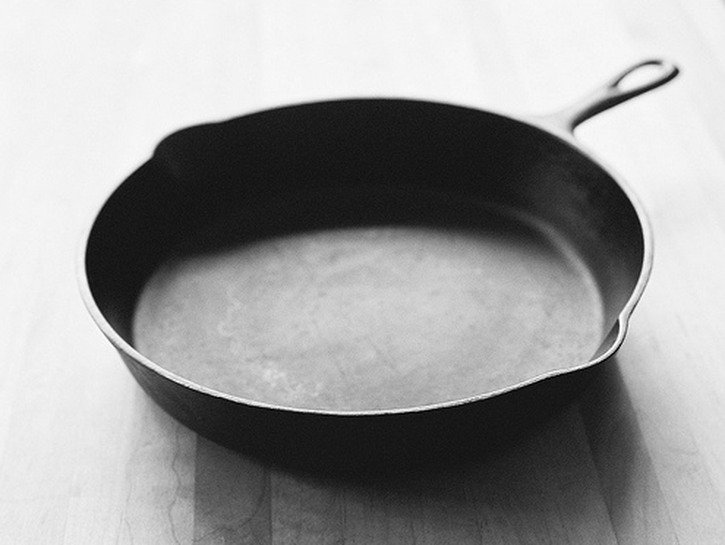Whether your cast iron skillet is used sporadically or daily, how you clean it matters. When it comes to properly caring for your cast iron skillet, your technique is important because it’s what you don’t do that can permanently damage your cookware. Here are some tips that can help your cast iron wear last for a very long time and maintain its usefulness.
Benefits of A Cast Iron Skillet

Cast iron skillets are made of an alloy of carbon and iron that is shaped and molded on a blasted furnace. Cast iron is the most durable cookware that you can find and is suitable for a variety of different cooking mediums, including a campfire, barbeque pit, inside of an oven, and over a stove top. What’s even better, the coating gets enhanced with each use.
Each time that you cook with an iron skillet, you are enriching your meals with iron, which, according to research benefits those who are anemic. Not only are cast irons superior cooking tools, they also hold other benefits such as imparting the same non-stick properties as a non-stick pan when seasoned and oiled well. Additionally, cast iron skillets and pots keep your food from burning, encouraging evenly cooked meals with each use. Other benefits include:
- Ample durability and long-lasting.
- Relatively inexpensive and easy to find.
- Less oil required.
- Easy cleanup.
How To Properly Clean A Cast Iron Skillet

While other types of skillets may benefit from utilizing soap and water after each use, due to stuck-on food and hard to scrub grease, cast irons are a little different in that they don’t necessarily require the same type of cleaning. With just a dash of salt and water, you can bring out the best qualities in your cookware. Cleaning a cast iron skillet is relatively easy and doesn’t always require the use of soap and water, unlike conventional pots and pans. You can add a dash of detergent if you want, but it’s crucial to keep in mind that soap isn’t really the most effective method to clean cast iron, unlike stainless steel. Also avoid using the dishwasher with your cherished iron skillets as this may scrape off any seasonings that you built up over time.
What You’ll Need
- Cast iron skillet
- Stiff brush or sponge
- Drying cloths or paper
- Vegetable oil
- Kosher salt
- A stove

What to Do
1. Immediately after cooking, clean the skillet while it’s still hot. Do not soak the pan in water as this may cause rust. Scrape off any caked on food with a scrub brush or sponge.
2. Next, rinse off the skillet, using hot water, scrubbing any hard-to-remove particles, until completely clean.
3. To remove particles that won’t budge, apply a little kosher salt and scrub with the brush until debris loosens. Or you can boil a little water in the pan to loosen pieces of food.
4. After cleaning is complete, dry off the skillet with a dry cloth or, place skillet onto the stove on low heat to evaporate all the moisture.
5. Once completely dry, with paper towel or clean cloth, rub vegetable oil into the interior of the cast iron skillet. Some like to apply vegetable oil to the outside as well. Remove any excess oil once fully coated.
6. Store oiled skillet in a dry place.
Like a fine wine, cast iron skillets get better with age. The more you use them, the better your food tastes. Utilize these tips to give your iron skillets the TLC they deserve and they will last years to come.
